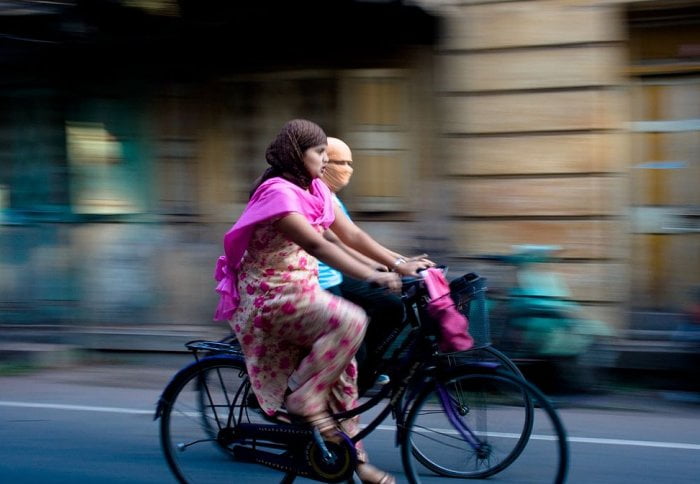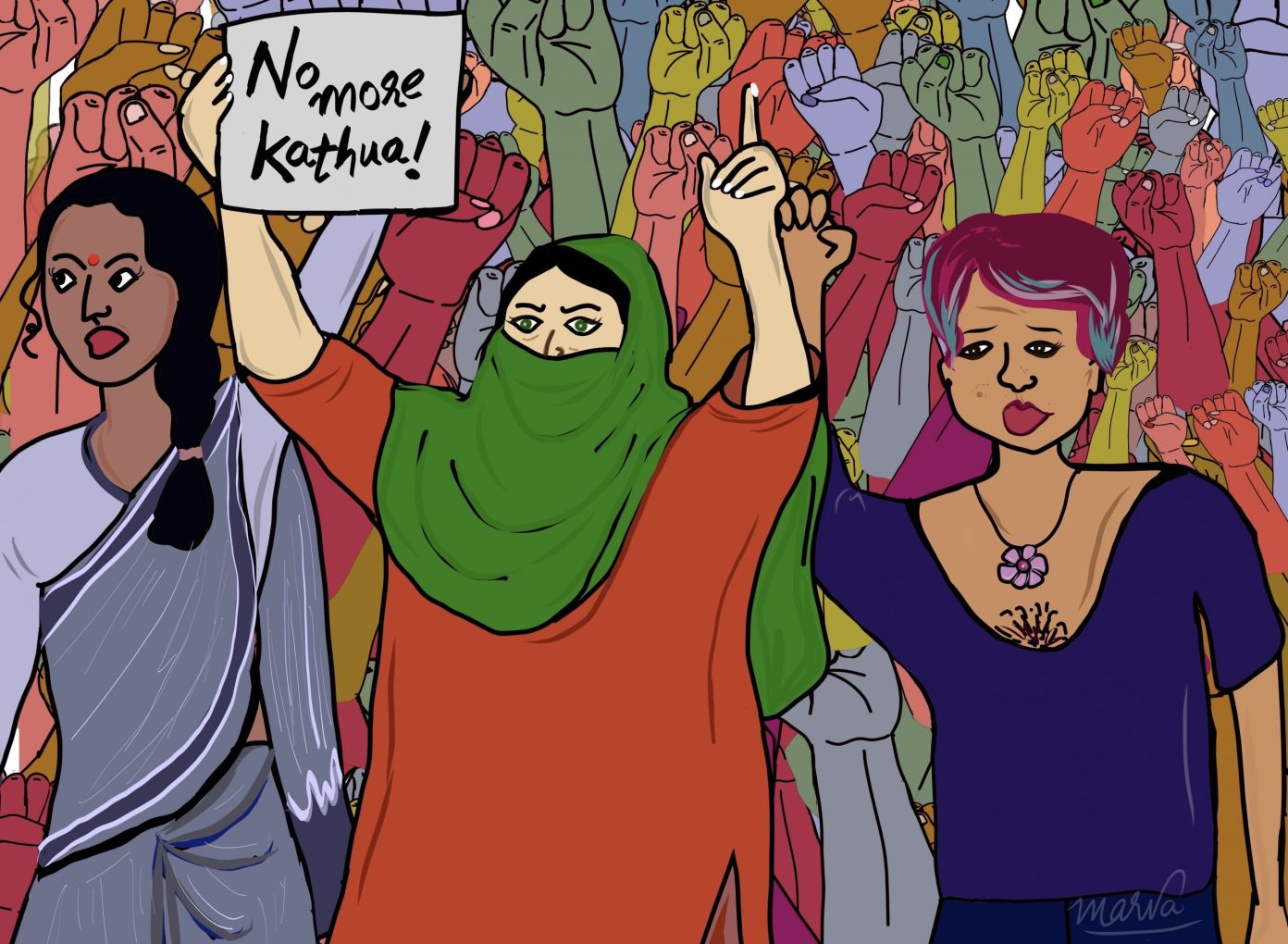Last year, I attended a panel discussion ‘Women on the Move’ organised by Safetipin, ITDP and UN Women at IIC, Delhi. The panellists included a representative from Delhi Police, the chairperson of South Delhi Municipal Corporation and few other researchers. The core of the panel discussion was predominantly centred on how to make urban public transport more gender sensitive.
Thereby, the two-hour-long discussion, on one hand, talked about statistics and facts about women facing some or the other form of “routine” harassment in public transport while on the other hand, there were suggestions and solutions for the daily struggles of women through the modus operandi of surveillance, patrolling, etc. Every suggestion and every option suggested largely covered the ‘safety issue’ of women in public transport which is the prime issue for women in almost every sphere of life, isn’t it?
From the plethora of recommendations, adapting cycling as a means of transport within the city sounded fresh to me. The cycle is a traditional means of transport. In my school days, I remember my friends and I going to school on a bicycle and also running errands on it. However, over the years, with the growth in the economy, the accessibility has increased and it became relatively easier for people to access more comfortable means of transport (at least for a certain class of people).
being on a bicycle means being more exposed and vulnerable as compared to being in a car.
Cycling is the next best solution to the pollution-laden environment we live in and also rapidly exhausting fossil fuels. In fact, for the Smart-City plan, the government plans to include cycling lanes alongside the road (and let us hope for its success unlike the facedown failure of BRT corridors). For women, safety still remains a matter of concern as being on a bicycle means being more exposed and vulnerable as compared to being in a car.
Cycles have also been said to be the potential cause for hymen breakage in girls. Specifically, in the Indian context where virginity for an unmarried girl is upheld as her self-worth, cycling does not remain a mere means of transport for women but an impactful tool/space for claiming gender equality.
Research testifies that the hymen is not proof of virginity. For instance, some girls are born without a hymen and even after penetration, the hymen can remain unbroken and so on and so forth.
Also Read: Compartmentalization In Public Transport: Does It Really ‘Protect’ You?
The concept of virginity has always been ironclad in the case of women but never in the case of men. Hymen repair surgery or hymenoplasty is done to reconstruct hymen remnants in case they are ‘broken’ due to some or the other reason before marriage.
Opposition to cycling then becomes another tool to control women’s bodies. The debate here is not whether cycling does break the hymen or not, but how cycling can be a potential tool to reclaim women’s rights over their own bodies. Bicycles have also been said to cause erectile dysfunction in men but how much has it affected the visibility of men cycling on the road?
Shreya (one of the panellists) talked about promotional activity in Tamil Nadu where cycling was promoted. Something similar happened in Thiruvananthapuram where cycle enthusiasts started a campaign called as ‘Donate a Cycle’ to girl students from economically disadvantaged families. Two girls, Harsha and Savitri, toured India on bicycles to spread the message of ‘Unity in Diversity and Women’s Empowerment’.
Opposition to cycling then becomes another tool to control women’s bodies.
It is true that women have a long way to go in claiming their space whether in public or in private. These above campaigns are signs as well as reminders that we have to keep making persistent efforts to turn the table in our favour.
Cycling is one of the best means of eco-friendly transportation and it is also healthy. In order to reap in all the benefits of it, government policies are necessary but to make sure that these policies are implemented well, we all need to make deliberate efforts as a society. Since almost every discussion about women boils down to safety, the government can make the policy more inclusive and beneficial for women by considering the following points:
- Women only lanes
- Well lit streets
- Making women visible on the roads like the way they did with women’s only coach in the metro.
Eventually, it is about the acceptance of women in public spaces. To be able to share the space with women and not understand it as taking a step back, rather as moving ahead together.
Also Read: Analysis Of Urban Areas And Planning From A Disability Perspective
Featured Image Credit: Imperial College London
About the author(s)
Nidhi is a Masters in Gender Studies and a fitness freak. She is a feminist writer by day and a yoga instructor by sunrise.




